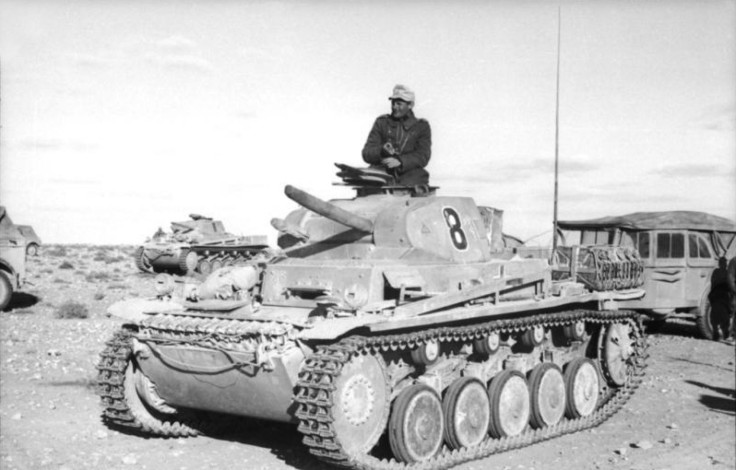El Alamein: 70 Years After The Allies' Decisive Victory In The Desert

War veterans -- now primarily in the 90s -- gathered over the weekend at El Alamein, the battlefield in western Egypt, to commemorate the 70th anniversary of the conflict that turned the tide in favor of the Allies during World War II.
The Second Battle of El Alamein (the first one occurred in July 1942 and ended in a stalemate) took place over three weeks at the end of October of that year. Allied troops -- comprising soldiers from Britain, British India, Australia, South Africa and New Zealand -- decisively defeated the German-Italian (Axis) threat in North Africa -- denying them access to the Suez Canal and the oilfields of the Middle East -- and ultimately paved the way for an allied victory in the global conflagration.
The Allied armies lost 13,500 in casualties at El Alamein, about one-third Axis casualties.
By 1943, the Axis forces finally surrendered North Africa.
Following the collapse of France in 1940 and the loss of the Far East with the fall of Singapore in 1942, the battle at El Alamein restored British military morale and made a hero out of Lieutenant-General Bernard Montgomery, commander of the British Eighth Army.
Britain’s wartime leader Winston Churchill remarked that with respect to El Alamein, the allied army suffered no subsequent defeats.
"This is not the end, it's not even the beginning of the end; but it is, perhaps, the end of the beginning," he famously stated.
Montgomery attributed the Allied victory largely to superior air support.
“The moral effect of air action [on the enemy] is very great and out of all proportion to the material damage inflicted,” he wrote later.
“In the reverse direction, the sight and sound of our own air forces operating against the enemy have an equally satisfactory effect on our own troops. A combination of the two has a profound influence on the most important single factor in war -- morale.”
After the war, Montgomery was raised to the peerage and was granted the title "Viscount Montgomery of Alamein."
His German counterpart, Field Marshall Erwin Rommel (the legendary ‘Desert Fox’) faced a far grimmer fate -- he eventually turned against Adolf Hitler and was eventually ordered to kill himself for plotting to assassinate der Fuehrer.
© Copyright IBTimes 2024. All rights reserved.





















